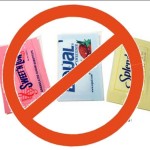 Sometimes the biggest thing holding someone back from increasing the health of their lifestyle or beginning a weight loss journey is the fear of change. A big change many people fear is leaving all of their “favorite foods” behind, including sweet treats. While sweet treats should only be consumed in moderation, there are some sweeteners that are a much better alternative to the traditional white table sugar.
Sometimes the biggest thing holding someone back from increasing the health of their lifestyle or beginning a weight loss journey is the fear of change. A big change many people fear is leaving all of their “favorite foods” behind, including sweet treats. While sweet treats should only be consumed in moderation, there are some sweeteners that are a much better alternative to the traditional white table sugar.
Here are eight of our favorite sugar substitutes
Stevia – Stevia is an herb grown in Central and South America that is up to 40 times sweeter than traditional sugar. Stevia is kind of the new kid on the block of sugar substitutes, because for a long time many people weren’t interested in its bitter, licorice-like aftertaste. However, companies like Truvia and SweetLeaf have figured out how to extract the sweetness from the sweetest part of the plant, leaving behind the bitter aftertaste. With zero calories and nearly no glycemic index, stevia is a great choice for a no-calorie sugar substitute that won’t impact your blood sugar levels. Just be careful if baking with stevia – because of its concentrated sweetness, you don’t need nearly as much stevia as you would sugar, unless you’re using a prepared stevia baking blend.
Maple Syrup – Real 100% maple syrup (not the flavored breakfast syrup) is a fantastic natural sweetener. This amber-colored liquid is made from the sap of the sugar, black, or maple tree. The sap itself is clear and nearly tasteless, but when boiled, much of the water content evaporates leaving a syrup with 60% sugar. Because it is a little more natural, it’s higher in nutrients like manganese and zinc. These minerals can boost your antioxidant defense, protect your heart, and support your immune system. Be careful though – it’s still sugar, so don’t use this as an excuse to eat more maple syrup!
Honey – Honey is a natural sweetener that’s made when bees and other insects collect nectar from flowers. Because it’s a liquid sweetener, it’s a little more concentrated so there are actually slightly more calories per teaspoon of honey compared to a teaspoon of white table sugar. Local honey does offer a few health benefits, though, as it’s a great energy booster, immune booster, and a natural remedy for many ailments. Another fun thing about honey is that the flavor of the sweetener can vary depending on the type of flower nectar the bees used. These varieties, like orange blossom honey or blackberry honey, can add even more flavor in addition to a little sweetness to something like a mug of tea or bowl of oats.
Lucuma Powder – Lucuma powder is made from the whole Peruvian lucuma fruit which has been dehydrated at low temperatures and ground into a powder. This powder is a low-glycemic sweetener with many nutrients like beta carotene, iron, zinc, vitamin B3, calcium and protein.
Agave – Agave nectar is from the same desert plant that tequila is made from. It’s a liquid sweetener, and one that is much sweeter than honey or sugar, so a lesser amount is needed. We do know that agave nectar doesn’t raise one’s blood sugar as much, but it does contain more calories per teaspoon. Again, though, due to the more concentrated sweetness, not much is needed, so an equivalent amount of calories as table sugar are typically consumed.
Molasses – Molasses, specifically blackstrap molasses, is a thick, viscous syrup that provides a strong, bittersweet flavor (typically found in dishes like gingerbread and baked beans). Blackstrap molasses is made during the process of making table sugar. Once the sugar syrup has been boiled for the third time and the sucrose has been crystallized, the remaining concentrated byproduct is blackstrap molasses. It actually provides a variety of nutrients like manganese, copper, iron, calcium, potassium, magnesium, vitamin B6, and selenium. In fact, just one teaspoon of blackstrap molasses contains 6.6% of the daily value of iron.
Coconut Sugar – Coconut sugar is derived from the flowers of the coconut tree. It has a low glycemic index and offers a variety of minerals, vitamins, and amino acids. Some of the minerals include calcium, magnesium, potassium, zinc, iron, copper, manganese, phosphorus, and boron. It also contains many of the B vitamins. Coconut sugar also contains twelve of the sixteen amino acids.
Xylitol – Xylitol is a naturally occurring sugar alcohol that is usually found in foods like beets, berries, and corn. It’s nearly as sweet as sugar, but since it’s not fully absorbed by the body, only nine calories are absorbed per teaspoon, and it has a much lower glycemic index. Additionally, xylitol also prevents plaque from sticking to teeth, which is why it’s often found in sugar-free gums. Just be careful using xylitol if you’re prone to digestive discomfort, as it can cause stomach aches, gas, and diarrhea, since it’s not fully absorbed.
While all of these sugar substitutes have some sort of benefit making it a superior choice to refined, white table sugar, it’s still important to remember that most of these do still contain calories and are still viewed as “sugar” in our bodies. Remember to always use sweeteners in moderation, and try to see if you don’t need as much sugar as you think.
